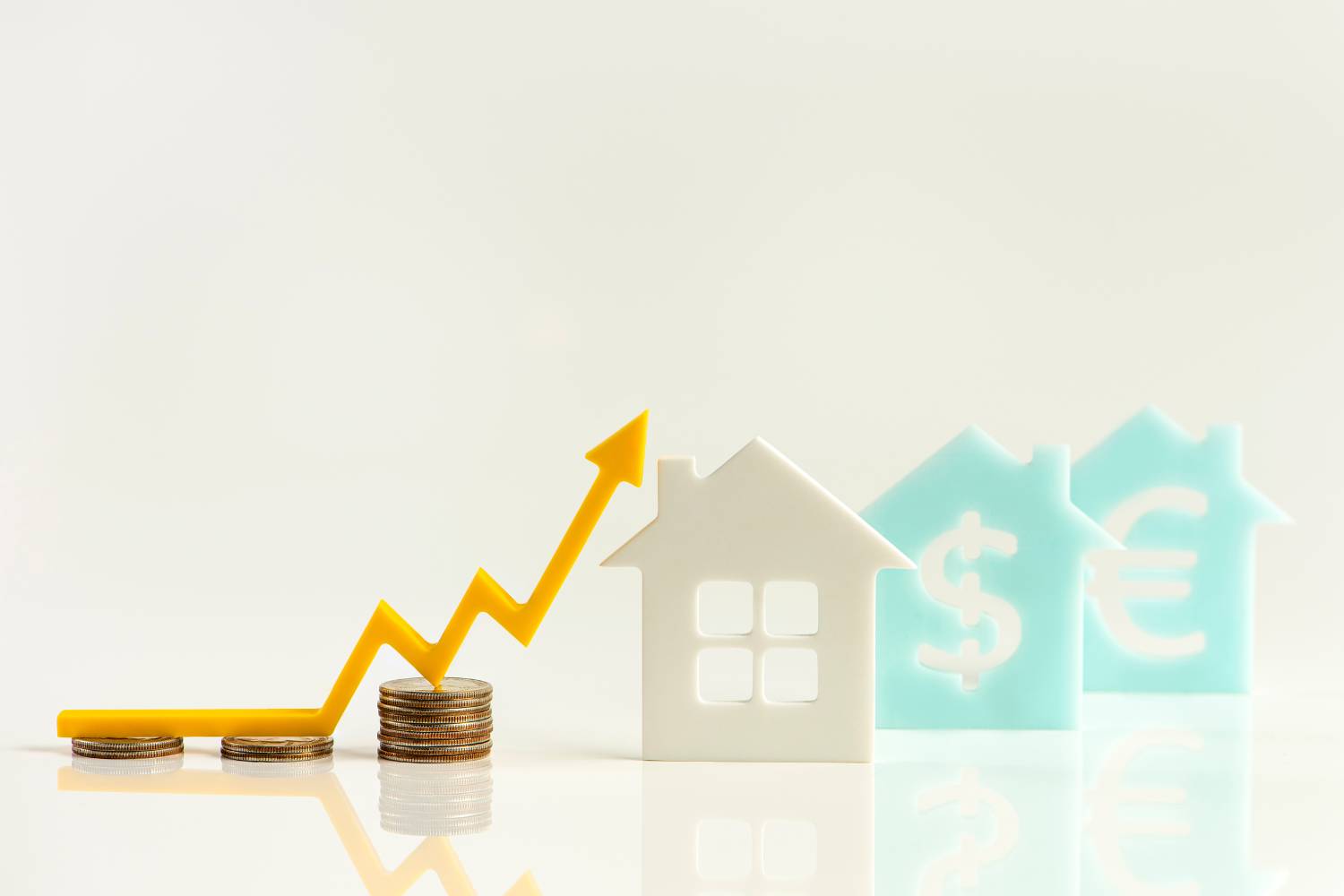In real estate, determining whether a property is undervalued or overpriced is essential for investors and homebuyers. Understanding its true value can prevent bad investments.
Conversely, if you’re a seller, knowing how to price your property accurately can help you avoid overpricing, which might lead to a prolonged time on the market, or underpricing, which could result in a loss of potential profit.
Here’s how to identify whether a property is undervalued or overpriced, considering a range of key factors, from market analysis to property characteristics.
Let’s Get Straight To The Point
To determine if a property is undervalued or overpriced, start with a market analysis by comparing its price to similar recent sales, neighbourhood averages, and local trends. Assess its condition, renovations, and amenities to gauge whether the price reflects its unique features.
Long listing times can signal overpricing, while understanding the seller’s motivation may offer negotiation opportunities. Tools like professional valuations, price-to-rent ratios, and offer history provide additional insights.
Factor in local economic trends and use online resources for extra data. A multi-faceted approach ensures informed decisions and prevents bad investments.
1. Market Analysis: A Crucial Starting Point
Before diving into the specifics of a property, one of the first steps in assessing its value is conducting a thorough market analysis. This will allow you to contextualise the asking price within the broader property landscape.
Compare The Property’s Price To Recent Sales (Comps)
When evaluating a property, it’s crucial to compare its price to comparable properties (comps) recently sold in the same area. This is one of the most reliable methods of determining whether a property is priced fairly.
Search for comparable properties in location, size, age, and condition. By looking at recently sold homes, you can establish a baseline price for the property you’re interested in and see if the listed price is within the expected range.
Analyse Local Market Trends
Beyond individual sales, understanding the local market trends is vital. Is the market experiencing high demand and low supply, which could increase property prices? Or is the area seeing a slow market, with fewer buyers and more homes available?
Local economic conditions—such as job growth, infrastructure projects, or demographic changes—significantly affect the property market’s overall performance. Understanding these factors can help gauge whether a property is priced in line with broader market conditions.
Consider The Property’s Price Relative To The Neighborhood Average
In addition to individual comps, look at the average price of homes in the neighbourhood.
Suppose the property is priced significantly higher than the average. In that case, it might be overpriced unless there are unique, value-adding factors such as a better location, larger land size, or superior amenities.
On the other hand, if the property is priced lower than the neighbourhood average, it could be an undervalued gem, but be cautious of potential hidden issues that justify the price difference.
2. Property Characteristics: What Makes The Property Unique?
The physical attributes of a property are just as important in determining its value. A property’s size, condition, and features all impact its market price.
Evaluate The Property’s Condition
A well-maintained property typically commands a higher price, so assess the property’s condition carefully. Is it in good shape, or will it require extensive repairs and renovations? If significant work is needed, the asking price should be reduced to account for the cost of repairs.
On the other hand, if the property is in excellent condition, it may be priced higher due to the reduced need for maintenance.
Assess The Need For Renovations Or Repairs
A property may appear undervalued if it requires extensive work, but this doesn’t necessarily mean it’s a good deal. Add the cost of the necessary renovations and repairs to the initial buying price.
It could be an undervalued opportunity if the total cost still comes under the market value of similar, fully renovated properties. However, if the repair cost exceeds the property’s potential value, it might be overpriced, even if it appears to be a bargain at first glance.
Compare The Property’s Amenities
Consider the amenities the property offers compared to others in the area. Does it have a pool, high-end appliances, a large backyard, or additional features like a home office space? These amenities may increase the property’s value, surpassing that of a similar house without them.
3. Time On Market: The Red Flag Of Prolonged Listings
Another indicator of whether a property is overpriced or undervalued is its time on the market. The longer a property stays listed, the more likely the asking price is too high.
Check How Long The Property Has Been Listed
Properties that linger on the market for weeks or months can often signal that the property is overpriced.
Typically, homes priced appropriately for the current market will sell quickly. If a property has been on the market for an extended period without receiving offers or selling, this could indicate that it is priced above market value.
Properties That Have Been On The Market For A While May Be Overpriced
In contrast, if a property has been sitting unsold for a long time, the seller may eventually be forced to reduce the asking price to attract buyers.
This presents an opportunity for savvy buyers to negotiate a better deal, as the seller may be more willing to lower the price after extended market exposure.
4. Seller Motivation: Understanding The Circumstances Behind The Sale
Knowing the reason for the sale might help determine if the asking price is reasonable. Sellers in different circumstances may have varying expectations for the sale price.
Investigate The Seller’s Circumstances
If the seller is in a hurry to relocate or facing financial difficulties, they may be motivated to accept a lower offer than the asking price.
On the other hand, if the seller is not pressured to sell quickly, they may hold firm on the price, even if it seems high for the market. Sometimes, a seller who has already invested a lot into the property may be more inclined to overprice it, hoping to recoup their expenses.
Motivated Sellers May Be More Willing To Negotiate
If you discover that a seller is motivated to sell quickly, this could be an opportunity to negotiate a price that reflects the property’s true market value rather than the initial asking price. Conversely, sellers not eager to sell may be less likely to accept an offer below their listed price.
5. Professional Valuation: Getting Expert Guidance
A professional property valuation is one of the most accurate ways to determine a property’s true value. Professional valuers consider various factors to arrive at a comprehensive property price.
Consider Obtaining A Professional Property Valuation
Valuers frequently employ three methods: the income approach, the cost approach, and the sales comparison technique. The sales comparison technique compares the property to similar recently sold properties.
The cost technique determines the property’s worth by subtracting depreciation from its replacement cost. The income technique determines the value of investment properties by considering the anticipated rental revenue.
By obtaining a professional valuation, you can gain a clearer understanding of the property’s value, helping to ensure that you’re not overpaying or underpricing.
6. Price-To-Rent Ratio: A Potential Indicator Of Undervaluation
The price-to-rent ratio is another helpful metric for evaluating whether a property is undervalued or overpriced. Divide the property price by the annual rental income to calculate this ratio.
Calculate The Price-To-Rent Ratio
A lower price-to-rent ratio, typically around 12 or lower, could indicate that the property is undervalued, as it is more affordable than rental income.
A higher ratio, on the other hand, could suggest that the property is overpriced, especially if rental income does not justify the price.
7. Offer History: A Window Into Buyer Interest
The offer history of a property provides valuable insight into its desirability.
Inquire About Previous Offers
If the property has been listed for some time without any offers or has received multiple low offers, it could be a sign that the asking price is too high.
On the other hand, a property that has received multiple competitive offers might be priced appropriately or even underpriced, attracting significant buyer interest.
8. Market Indicators: External Economic And Demographic Factors
Local economic factors and demographic trends can also influence property pricing. Look for any upcoming developments, such as new infrastructure, transport links, or business hubs that could drive property values up in the future.
Demographic changes, like an influx of new residents or changes in local employment rates, can also affect market prices.
9. Online Tools And Resources: A Quick Reference Point
Online tools and property databases can be valuable resources for property valuation. Many real estate websites provide information about sold properties, current listings, and even automated valuation tools that can give you a ballpark estimate of a property’s value.
While these tools should not replace expert advice, they can help you gather additional data for your analysis.
Utilise Online Valuation Tools And Property Databases
You can better understand the competitive landscape by researching sold prices and current listings in the area. This will allow you to identify whether a property is priced appropriately or if you should negotiate further.
Conclusion
Determining if a property is undervalued or overpriced requires a comprehensive approach, including market analysis, understanding the property’s characteristics, and examining the seller’s motivations.
Considering the abovementioned elements can help you ascertain whether the asking price accurately represents the property’s value, although no single factor can ensure an accurate valuation.
Consulting with real estate professionals, obtaining a professional valuation, and leveraging online tools can further support your decision-making process and ensure you make an informed choice in your property transactions.
Frequently Asked Questions
What Is The Most Important Factor In Determining If A Property Is Undervalued Or Overpriced?
A thorough market analysis is the most important factor in determining whether a property is undervalued or overpriced. This involves comparing the property to similar properties (comps) recently sold in the area, analysing local market trends, and evaluating the property’s price relative to the neighbourhood average. A comprehensive market analysis gives you a good sense of whether the price aligns with current market conditions.
How Do I Compare The Property’s Price To Similar Homes In The Area?
You can compare the property’s price to similar homes, also known as comparables (comps), by researching recent sales of properties in the same area that are similar in size, age, condition, and features. You can do this by looking at real estate websites, asking a local agent for recent sales data, or using online property valuation tools. This will give you a benchmark to determine if the property is priced fairly compared to others in the vicinity.
How Can I Tell If A Property Is Overpriced Based On Its Time On The Market?
If a property has been listed for an extended period without selling, it could be indicated as overpriced. Typically, properties that are priced correctly sell relatively quickly. A property that lingers on the market may not attract offers because the price is too high for the current market conditions.
What Role Do Inspections Play In Identifying Value?
A professional inspection can reveal potential issues with the property that affect its true value, such as structural problems, outdated systems, or hidden damage. These insights can help you gauge whether the asking price is justified.
What Are Red Flags For Overpriced Properties?
Red flags include:
- The listing price is significantly higher than comparable properties.
- The property has been on the market for a long time without price adjustments.
- Unrealistic seller expectations or resistance to negotiations.



